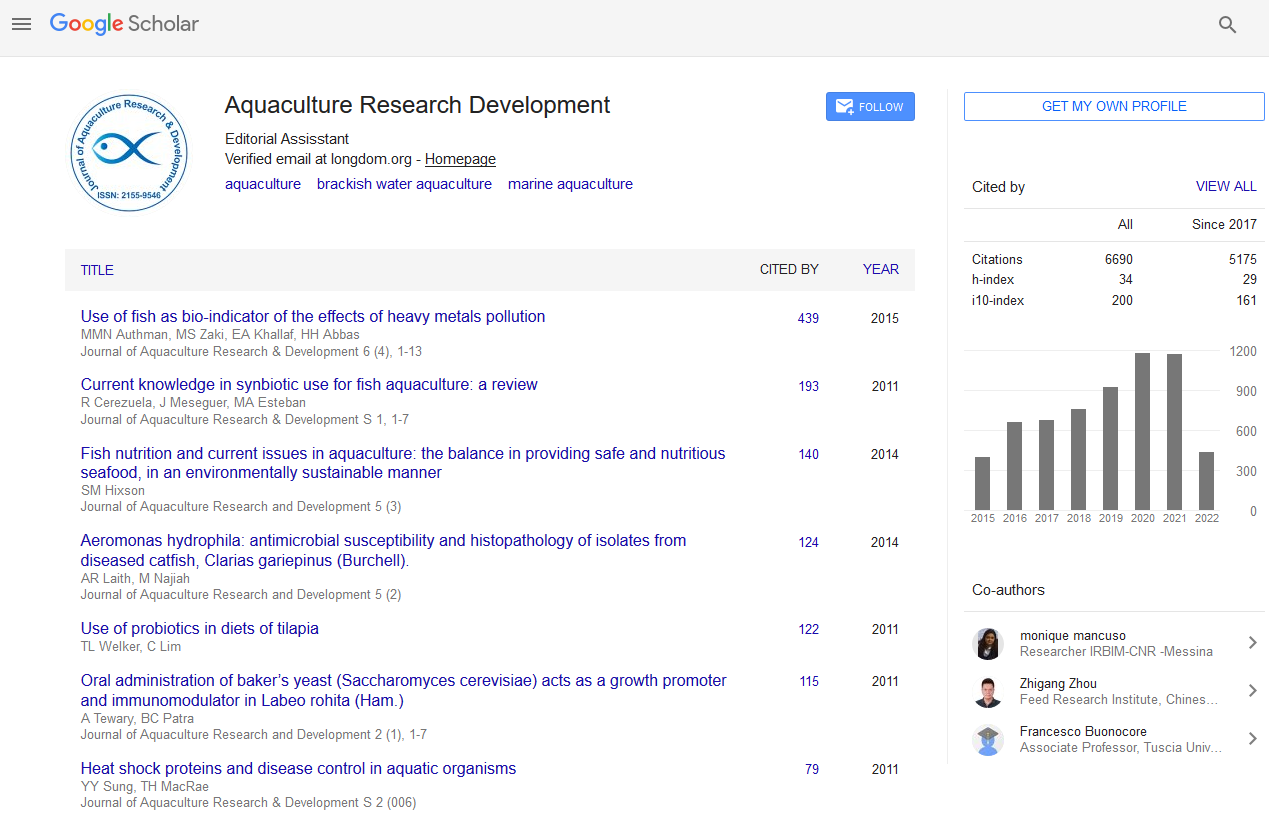PMC/PubMed Indexed Articles
Indexed In
- Online Access to Research in the Environment (OARE)
- Open J Gate
- Genamics JournalSeek
- JournalTOCs
- Scimago
- Ulrich's Periodicals Directory
- Access to Global Online Research in Agriculture (AGORA)
- Electronic Journals Library
- Centre for Agriculture and Biosciences International (CABI)
- RefSeek
- Directory of Research Journal Indexing (DRJI)
- Hamdard University
- EBSCO A-Z
- OCLC- WorldCat
- Scholarsteer
- SWB online catalog
- Virtual Library of Biology (vifabio)
- Publons
- MIAR
- University Grants Commission
- Euro Pub
- Google Scholar
Useful Links
Share This Page
Journal Flyer

Open Access Journals
- Agri and Aquaculture
- Biochemistry
- Bioinformatics & Systems Biology
- Business & Management
- Chemistry
- Clinical Sciences
- Engineering
- Food & Nutrition
- General Science
- Genetics & Molecular Biology
- Immunology & Microbiology
- Medical Sciences
- Neuroscience & Psychology
- Nursing & Health Care
- Pharmaceutical Sciences
Research on application of fucoidan in tumorigenesis inhibition
International Conference on Aquaculture & Fisheries
July 20-22, 2015 Brisbane, Australia
Hsien Yeh Hsu
Posters-Accepted Abstracts: J Aquac Res Development
Abstract:
Fucoidan, as one kind of brown seaweeds-derived polysaccharides exerts anti-tumorigenesis in cancer cells. We recently demonstrated that there is an alternative approach of studying biological anti-cancer function of fucoidan. We found fucoidan inhibits the proliferation, transforming capability, colony formation, mobility, etc. in cancer cells including breast and lung cancers. In xenograft-mice models, we demonstrated that fucoidan inhibits the tumorigenesis, reduces tumor size and metastasis of xenografted breast and lung cancer to tissues/organs in vivo. The mechanisms for fucoidan anti-metastasis are under further investigation. As it known that TGF-? receptors (TGFRs) and mediates related signal transduction pathways play important roles in development of tumors and metastasis; hence, we investigated the effects of fucoidan on TGFRs and other relevant molecules in the development of tumorigenesis. Initially, we found fucoidan effectively reverses TGFR-induced epithelial-to-mesenchymal transition (EMT) morphological changes. The data indicated that fucoidan decreases TGFRsmediated Smad/non-Smad signaling pathways in cancer cells. Specifically, our study is the first to identify a novel mechanism for the anti-tumor activity of fucoidan, namely decreasing tumor growth by modulating the TGFR/Smad7/Smurf2-dependent axis in the fucoidan-enhanced ubiquitination proteasome pathway (UPP)-mediated degradation of TGFRs, and inhibition of breast, lung cancer cells progression in vitro and in vivo. The current findings indicate that fucoidan has potential as a therapeutic intervention or dietary supplementation for controlling cancers development.
Biography :
Hsien Yeh Hsu is a Molecular and Cellular Biologist. He obtained PhD from Cornell University, USA. Later, he worked on biotechnology companies as Senior Scientist and Project Manager in Boston area. In 1993, he became Assistant Professor in Weill Cornell Medical College, NYC. In 1997, he returned to National Yang-Ming University, Taiwan as Associate Professor; he was promoted to be Professor in 2002. Currently, he works at Department of Biotechnology and Laboratory Science in Medicine, and also as Research Fellow in Genomics Research Center, Academia Sinica, Taiwan. He focuses on function of polysaccharides in anti-cancers and dissects the inhibitory mechanisms of cancers in mice model. He engages on examining anti-cancers therapeutic intervention and on developing anti-cancers drugs.


